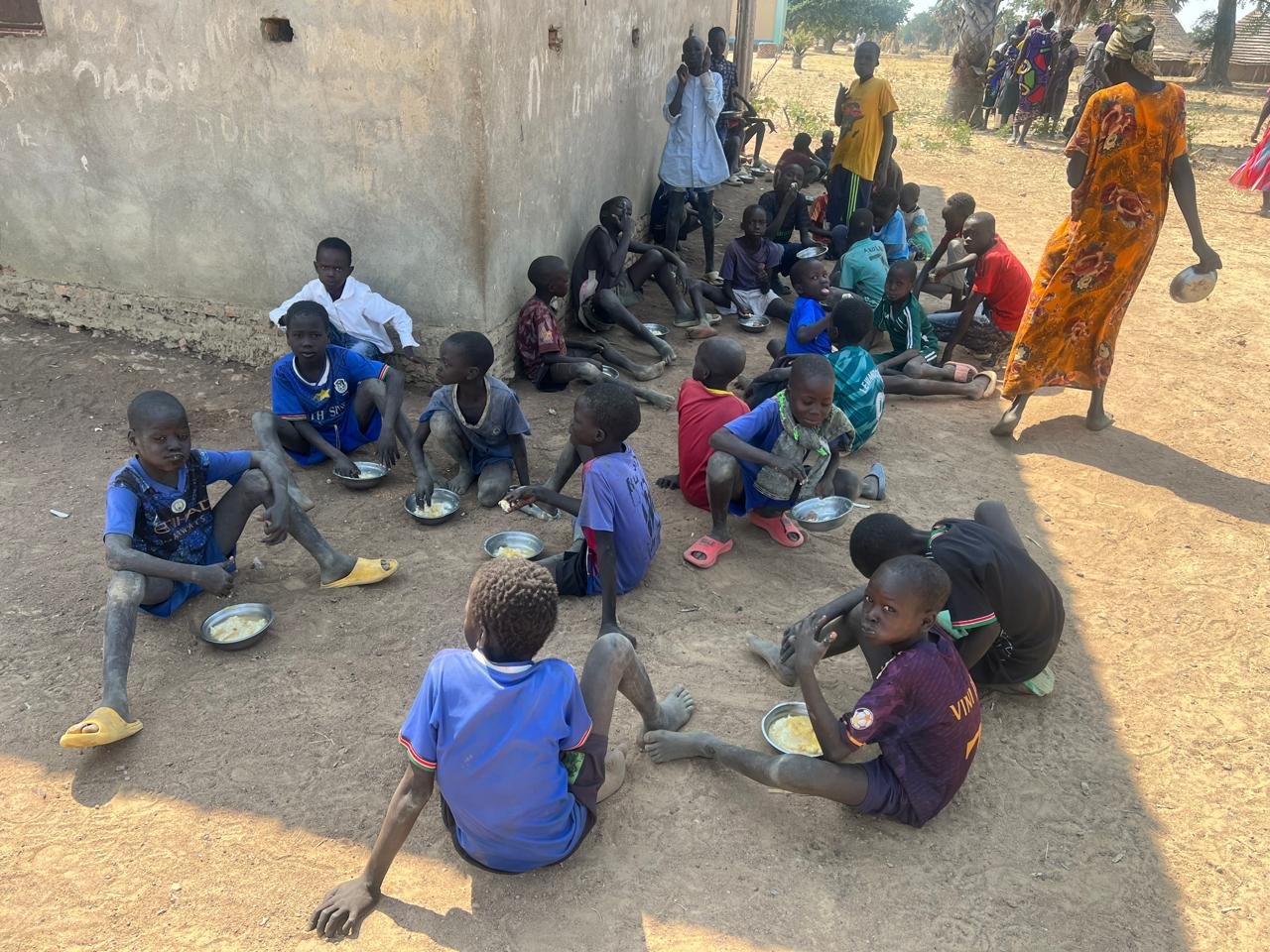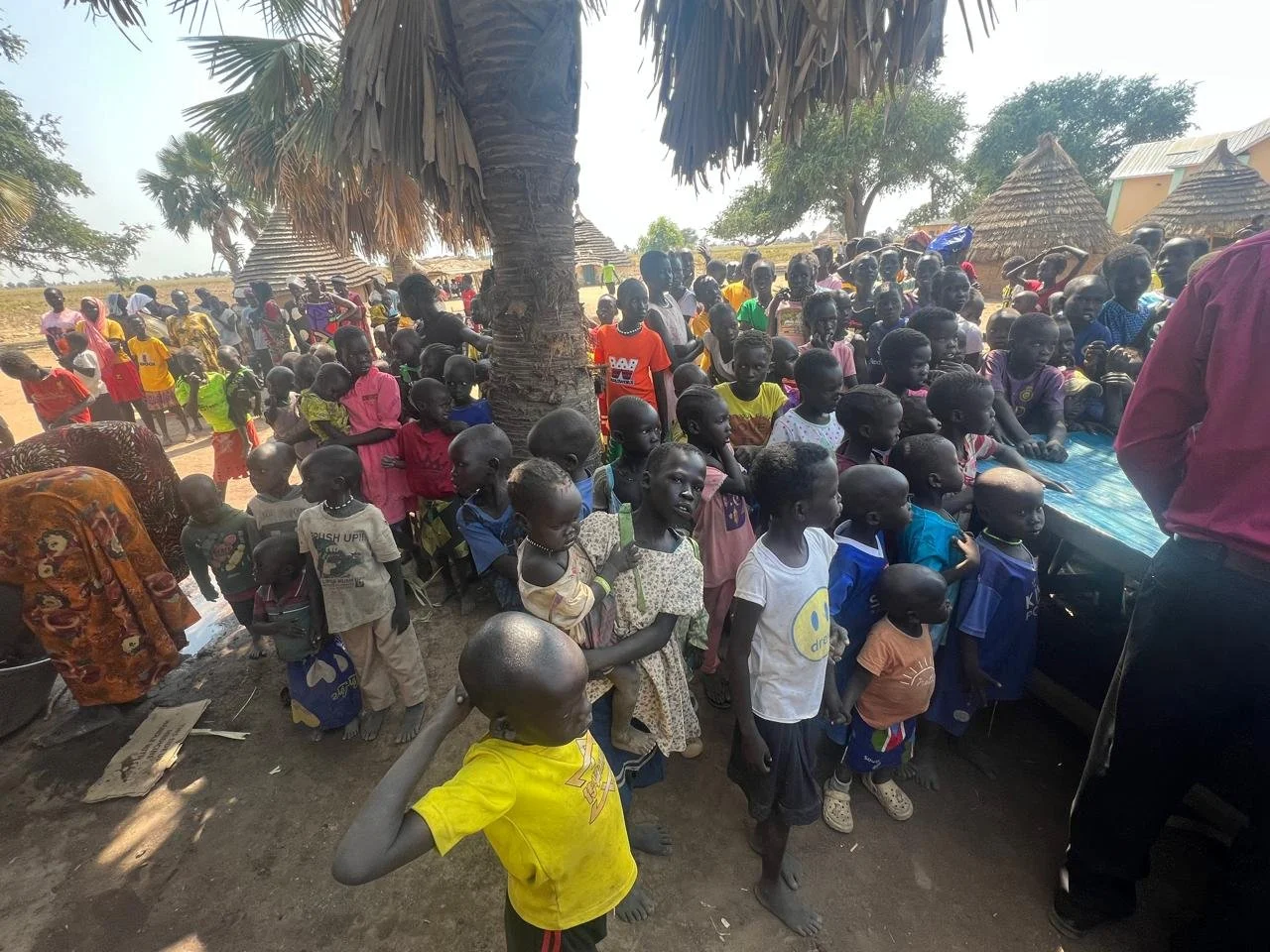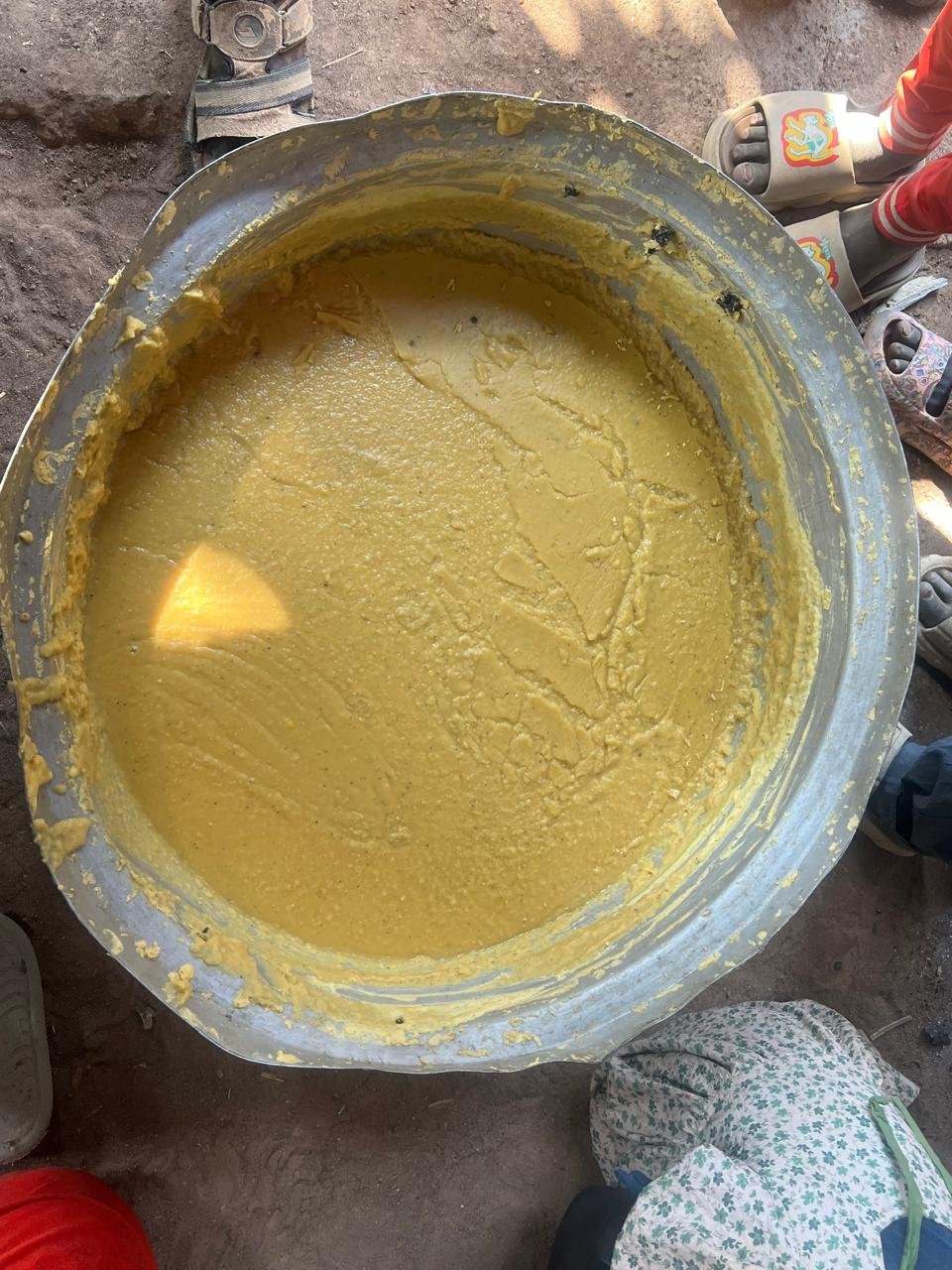The Challenges of Nutrition for Orphan Children in South Sudan
Aweil, South Sudan | Christ Mission to the World
South Sudan is a country that gained independence in 2011, and where we have served alongside of Christ Mission to the World (CMW) since 2016. We work with CMW in five locations; four village schools, and one orphanage located at a Church, to feed 1,753 orphan children.
South Sudan is faced with numerous challenges in providing adequate nutrition for its population, especially orphaned children. These children, often victims of the country's ongoing conflict, instability, and poverty, face critical barriers to proper nutrition. With an economy in turmoil, the effects of civil unrest, and limited infrastructure, orphans in South Sudan are disproportionately affected by malnutrition, hunger, and related health issues. We hope to outline the key challenges faced by orphaned children in the country in accessing proper nutrition in this post.































Pictured Above is the Christ Mission to the World team feeding the 603 orphan children who attend the village of Adoor.
1. Poverty and Economic Instability
The economic situation in South Sudan remains precarious, with widespread poverty affecting the majority of the population. The conflict, which began in 2013 and ended in a fragile peace agreement, devastated agricultural production, disrupted markets and displaced millions of people, including children. Orphaned children are often left in the care of extended family members or community groups who have limited resources to meet basic needs, including food. In rural areas, where the majority of South Sudan’s orphans reside, poverty is exacerbated by the lack of infrastructure, making it difficult for these children to access nutritious food.
The poverty cycle is further compounded by a lack of employment opportunities for caretakers, as well as reduced international aid as donor fatigue sets in. Families and communities often rely on subsistence farming, but droughts, floods, and ongoing conflicts severely impact agricultural production, making nutritious food scarce and expensive. This further leaves orphans vulnerable to food insecurity.
2. Food Insecurity
Food insecurity is one of the most significant challenges facing South Sudan. The United Nations has frequently highlighted that food insecurity in the country is at critical levels, and orphaned children are at the highest risk of suffering from its consequences. According to the World Food Programme (WFP), a significant portion of South Sudan’s population is facing severe hunger, with millions in need of humanitarian assistance. Orphaned children in both urban and rural areas often do not have regular access to sufficient food, leading to malnutrition, stunted growth, and related health issues. As of this post, WFP does assist us at one of our four school locations by providing some of the needed food supplies.
In addition to food shortages, access to clean water is limited, contributing to poor nutrition outcomes. Many orphaned children are exposed to contaminated water sources, leading to waterborne diseases like cholera and diarrhea, which further deplete their nutritional status and increase vulnerability to malnutrition. We have attempted to address this issue in the area where we work by working with various partners to establish water wells in multiple locations through the years.
3. Limited Access to Healthcare
Access to healthcare in South Sudan remains limited, especially in remote regions. The healthcare system is weak due to the ongoing instability and lack of resources. This directly impacts the nutritional health of orphaned children, as they are less likely to receive medical care or nutritional support when they fall ill or suffer from malnutrition-related conditions such as anemia or stunting. Furthermore, the lack of trained healthcare professionals, medical facilities, and essential medicines means that even basic nutritional problems may not be addressed in a timely or effective manner.
4. Gender Inequality and Social Structures
In many South Sudanese communities, gender inequality and social norms can exacerbate nutritional disparities. Girls, particularly orphaned girls, are often given lower status in the household and may be the first to go without food. In some instances, orphaned children (both boys and girls) are excluded from food aid or may have to share any limited food they receive with extended family members. Cultural norms and patriarchal structures often put additional barriers in the way of ensuring equitable access to nutrition for orphans.
5. Impact of Conflict and Displacement
The protracted conflict in South Sudan has led to massive displacement, with millions of South Sudanese, including orphaned children, being forced to flee their homes and seek refuge in overcrowded camps or settlements. These refugees often face dire conditions where food, clean water, and basic sanitation are in short supply. In refugee camps, aid is often insufficient to meet the needs of all displaced children, and orphaned children are particularly vulnerable to malnutrition due to their dependency on external assistance.
Furthermore, the trauma of losing parents or guardians in conflict can lead to psychological stress, which can affect eating habits and overall health. Children may struggle to process their grief, impacting their ability to thrive in their new environments, where food security is already a pressing concern.
6. Limited Government and Institutional Support
The South Sudanese government, still in a fragile state after years of conflict, faces serious challenges in providing nutrition and welfare services for its population. Despite efforts by international organizations, the government’s capacity to manage programs for orphans and vulnerable children remains limited. In many parts of the country, orphaned children have no access to social safety nets or government-sponsored nutrition programs. This lack of institutional support means that many orphans rely on non-governmental organizations (NGOs) and aid agencies, whose resources are often overstretched.
7. Lack of Education on Nutrition and Health
Another significant challenge is the lack of education around nutrition and health. Many caregivers, especially in rural areas, have limited knowledge about proper child nutrition. The high levels of illiteracy and lack of public health education programs mean that orphans may not receive the right kind of diet to grow and develop. This is compounded by cultural practices and myths regarding food, which can lead to inappropriate feeding practices that undermine the health of orphaned children.
8. Psychological and Social Challenges
Orphaned children often suffer from emotional and psychological trauma due to the loss of their parents or caregivers. This trauma can interfere with their ability to eat properly or seek out food when available. Additionally, orphaned children may struggle to trust others, which makes it difficult for aid agencies and local communities to ensure that their nutritional needs are consistently met.
There are numerous areas in which we are working numerous international partners to better address the needs of orphan children in South Sudan.
Orphaned children in South Sudan face severe challenges when it comes to accessing proper nutrition. Factors such as poverty, food insecurity, poor healthcare, and the long-term effects of conflict create a complex web of challenges that demand urgent attention. Both international and local efforts are necessary to ensure that these children, who are already disadvantaged, receive the nutrition and care they need to grow, survive, and thrive. The survival and development of orphaned children in South Sudan depend on a coordinated response that prioritizes their health and well-being.
Feed the hungry and help those in trouble. Then your light will shine out from the darkness, and the darkness around you will be as bright as noon. Isa 58.10
###
In South Sudan, the drivers of food insecurity are prolonged dry spells, closure of trade routes between Sudan and South Sudan that have affected market functionality and led to high food prices, low household income and purchasing power, and the influx of returnees and refugees from Sudan.
The deterioration is mainly driven by the ongoing depletion of harvested stocks, reduced access to milk as livestock migrate in search of water and pasture, gradual increase of food prices, continued closure of trade routes between Sudan and South Sudan that will result in high food prices, reduced income at household level, and the influx of returnees and refugees from Sudan.
The risk factors to monitor during the project periods include the influx of returnees and refugees from Sudan, impacts of the conflict in Sudan on the state’s markets, high food prices, seasonal deterioration of road networks during the rainy season and associated impacts on market functionality, rainfall performance, cattle-related conflicts and insecurity, and election related insecurity fears.
Northern Bahr El Ghazal State has five counties with an estimated total population of 1.9 million. An estimated 255,129 cases with acute malnutrition need nutrition services in the State. Over one million children in South Sudan are likely to face extreme levels of malnutrition in the first half of 2024, cautions the World Food Programme (WFP).
Global Orphan Relief (GO!) in partnership with Christ Mission to the World (CMW) establishes feeding centres at village schools to provide meals to orphan children which has inspired many orphan children to attend school.
Children at Luethwek, South Sudan, receiving meals.
We have served in South Sudan since 2016 and have provided an estimated 2.4 million meals impacting more than 3,200 children in South Sudan. The scale of this initiative has grown by over 7 times since our launch in 2016, and this growth is driven by the near-famine conditions, the influx of refugees from Sudan, and other socio-economic challenges in this country.
In cooperation with partners, Kids for the Kingdom, Christ Mission to the World, and 200 Orphanages, there has been $164,000 invested in four school sites since October 2020. This investment provides for clean water, kitchens, storerooms, and latrines, all of which allow for cost-effective distribution of food aid in these communities.
Global Orphan Relief (GO) has been serving orphaned children since 2005. We have accomplished this work through local in-country partners that provide oversight and distribution of care.
In 2025, we are working to stabilize our funding for this project and will begin planning for further capital improvements for the locations where we currently provide food aid.
You may send support or other correspondence to Global Orphan Relief, 16352 Prairie Farm Cir, Parker, CO 80134 or you may give also give electronically at Nutrition Initiative or you may give on this website at the upper righthand corner under ‘Donate’ and choosing Nutrition under the Fund designation.
Movement of FAITH | Voice of HOPE | Act of LOVE
Global Orphan Relief is a Christian relief agency serving Orphans in need and a recognized U.S. public charity, tax-exempt under section 501(c)(3). All donations are tax deductible to the extent of the law.


